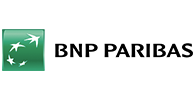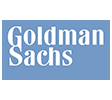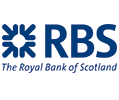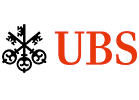How To Trade Through Troubled Times: FX Risk Management: Safe Haven Strategies Amid Geopolitical Tensions
- Let’s be honest: watching the news these days can feel like navigating a minefield. From trade disputes and surprise tariffs to regional conflicts and political uncertainty, the world often seems filled with tension. As a Forex trader, you might wonder: how does all this global drama affect the currency markets, and more importantly, how do I protect my trading account when things get shaky?
This is where understanding FX risk management, geopolitical risk and the concept of “safe-haven” currencies becomes crucial. It’s not just about economic data; world events can shake up exchange rates dramatically. Let’s explore how to manage risk and spot potential opportunities when global uncertainty spikes.
What is Geopolitical Risk in Forex?
Simply put, it’s the risk that political events, international relations, conflicts, or social instability around the world will negatively impact financial markets, including currencies. These aren’t your typical economic reports; they are often unexpected and can trigger sharp, emotional reactions from investors.
Examples of geopolitical risks impacting FX include:
- Trade Wars & Tariffs: When major economies (like the US and China, or the US and its neighbours like Canada/Mexico) impose tariffs (taxes) on each other’s goods, it disrupts trade flows. This can hurt the economies involved, potentially weaken their currencies, and fuel inflation. Uncertainty about future trade policies keeps markets on edge.
- Military Conflicts & Regional Tensions: Wars (like the ongoing Russia-Ukraine conflict) or escalating tensions in critical regions (like the Middle East) can have far-reaching effects. They disrupt supply chains, cause spikes in energy prices (affecting oil-linked currencies like CAD or NOK), damage investor confidence, and lead to widespread market volatility.
- Elections & Political Instability: Major elections or unexpected political changes (like leadership challenges or policy shifts) in key economies can create uncertainty about future economic direction, leading to currency fluctuations. Instability in emerging markets can trigger capital flight, weakening their currencies.
- Terrorism & Other Shocks: Sadly, unexpected events like major terrorist attacks can also shock markets, causing short-term panic and a flight to safety.
How Does Geopolitics Actually Move Currencies?
Geopolitical events influence FX markets through several channels:
- Risk Sentiment: This is the overall mood of the market. When bad news hits (conflict escalates, trade war worsens), investors often become risk-averse. They sell assets perceived as risky (like stocks, emerging market currencies, commodity currencies) and buy assets perceived as safe.
- Capital Flows: Uncertainty drives money across borders. Investors might pull money out of a country facing political turmoil or conflict, selling its currency and causing it to depreciate. Conversely, money might flow into countries perceived as stable and safe.
- Economic Impact: Conflicts and trade wars directly damage economic activity, reduce exports, and can increase inflation. A weaker economy generally leads to a weaker currency over time.
- Commodity Prices: Many geopolitical events impact key commodity prices, especially oil and gas. Currencies of countries heavily reliant on exporting these commodities are directly affected.
Enter the “Safe Havens”
During times of significant stress or uncertainty, traders and investors often seek refuge in certain assets known as “safe havens.” In the Forex world, the primary safe-haven currencies are:
- US Dollar (USD): The world’s main reserve currency. The US financial market is the deepest and most liquid. In times of global crisis, demand for USD often increases as investors seek safety and liquidity.
- Japanese Yen (JPY): Japan has a large positive net foreign asset position (meaning it owns more foreign assets than foreigners own Japanese assets). In times of stress, Japanese investors often repatriate funds (sell foreign assets and buy Yen), increasing demand for JPY.
- Swiss Franc (CHF): Switzerland has a long history of political neutrality, a stable economy, and a strong financial system, making the Franc a traditional refuge.
When geopolitical risk spikes, you’ll often see these currencies strengthen against others, even if their domestic economic fundamentals aren’t necessarily the best at that moment. Identifying potential safe-haven flows can be a trading opportunity, but it’s also tricky – these moves can be sharp and unpredictable.
Managing Your Risk When Headlines Hit
Trading during periods of high geopolitical tension requires extra caution and robust risk management. Here’s how to approach it:
- Acknowledge Increased Volatility: Understand that prices can move much faster and further than usual. What looks like a small news event can sometimes trigger an outsized reaction.
- Widen Your Stops (Carefully): Normal stop-loss levels might get triggered too easily by short-term noise or “panic spikes.” Consider using slightly wider stops, but ensure your position size is adjusted downwards accordingly so you aren’t risking more capital than usual on a single trade.
- Reduce Position Size/Leverage: This is crucial. When volatility is high, reducing the size of your trades lowers your overall risk exposure. Using less leverage means market swings have less impact on your account equity. It’s better to aim for smaller potential profits than risk significant losses.
- Stay Informed, Don’t React Impulsively: Keep up with major world events, but differentiate between market noise and truly significant developments. Don’t jump into or out of trades based on every single breaking news headline. Wait for confirmation or see how the market digests the news before acting.
- Focus on Major Pairs: During high uncertainty, liquidity can dry up in more exotic currency pairs, making them even riskier. Sticking to major, highly liquid pairs (like EUR/USD, USD/JPY, GBP/USD) might be prudent.
- Consider Hedging: More advanced traders might use options or trade negatively correlated pairs to hedge existing positions against geopolitical risk, but this requires a deeper understanding.
- Know When to Stay Out: If the market feels too chaotic or unpredictable for your strategy and risk tolerance, sometimes the best action is to step aside and wait for calmer conditions. There’s no shame in preserving your capital.
Identifying Opportunities
While risk management is paramount, geopolitical events can create opportunities:
- Safe-Haven Trades: If a major risk event unfolds, trading into safe-haven currencies (long USD, JPY, or CHF against riskier currencies) can be a strategy, but timing is critical and requires confirmation.
- Overreactions: Sometimes markets initially overreact to news. Patient traders might look for opportunities to fade the initial panic move if they believe the long-term impact is less severe than the market’s first reaction suggests. This is risky and requires careful analysis.
- Commodity Currency Plays: If an event directly impacts oil prices, for example, traders might look for related moves in pairs like USD/CAD or AUD/USD (though AUD is complex as it’s also influenced by risk sentiment).
Conclusion
Geopolitical risk is an unavoidable part of the Forex landscape. Events happening thousands of miles away can ripple through currency markets in seconds. While you can’t predict the next crisis or trade dispute, you can prepare for the uncertainty they bring.
Understanding how these events impact risk sentiment, capital flows, and safe-haven currencies is the first step. The second, and most important, is adapting your risk management. By staying informed (but not glued to the news), reducing leverage, managing position sizes wisely, and knowing when caution is the best approach, you can navigate even turbulent geopolitical waters more effectively. Remember, protecting your capital allows you to stay in the game long enough to catch the opportunities when they arise.
Disclaimer: This article is for educational purposes only and does not constitute financial or investment advice. Forex trading carries a high level of risk.
before: How to Trade When Interest Rate Policies Diverge
next: Mastering the True Strength Index (TSI) in Forex Trading


















